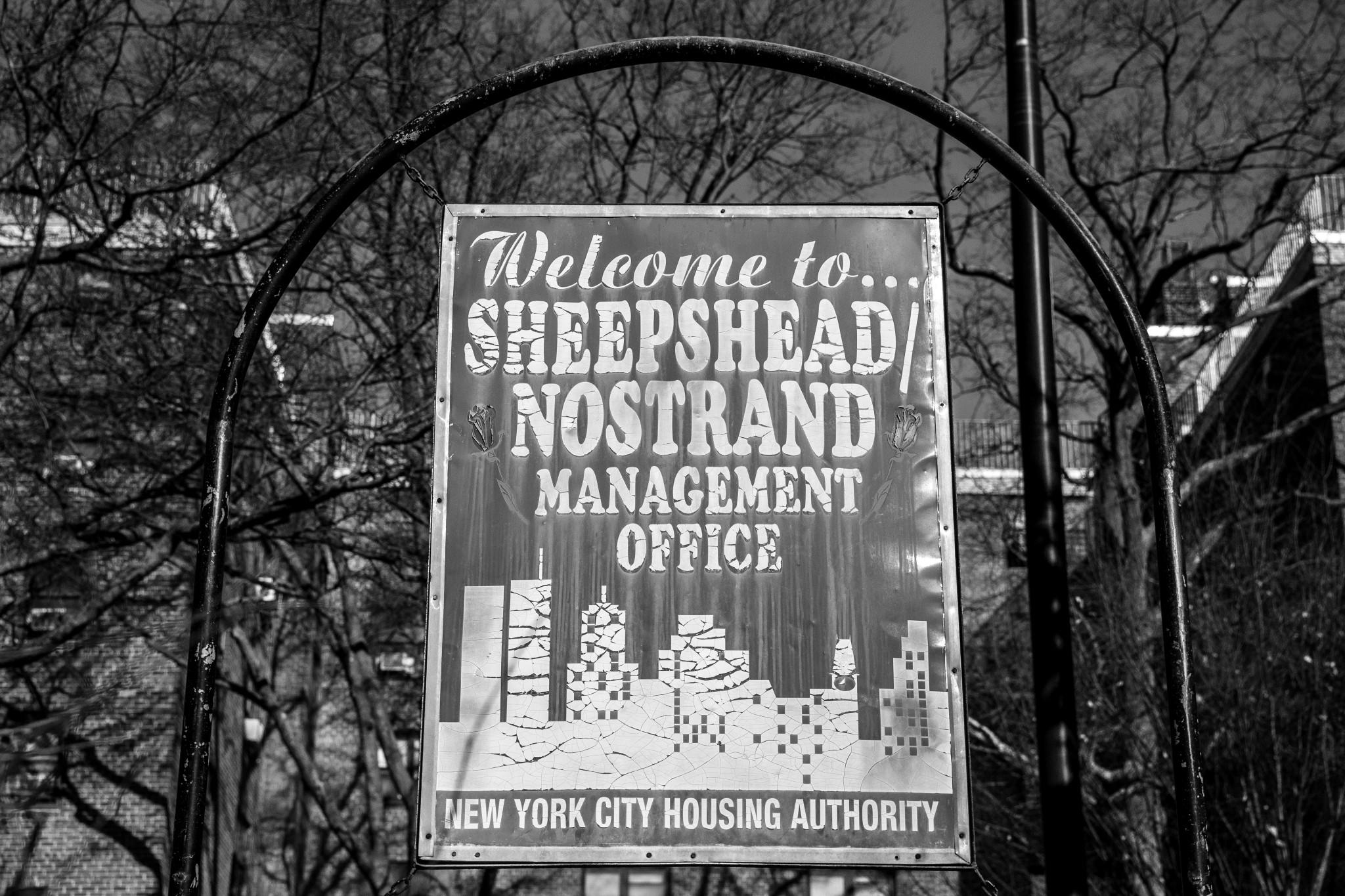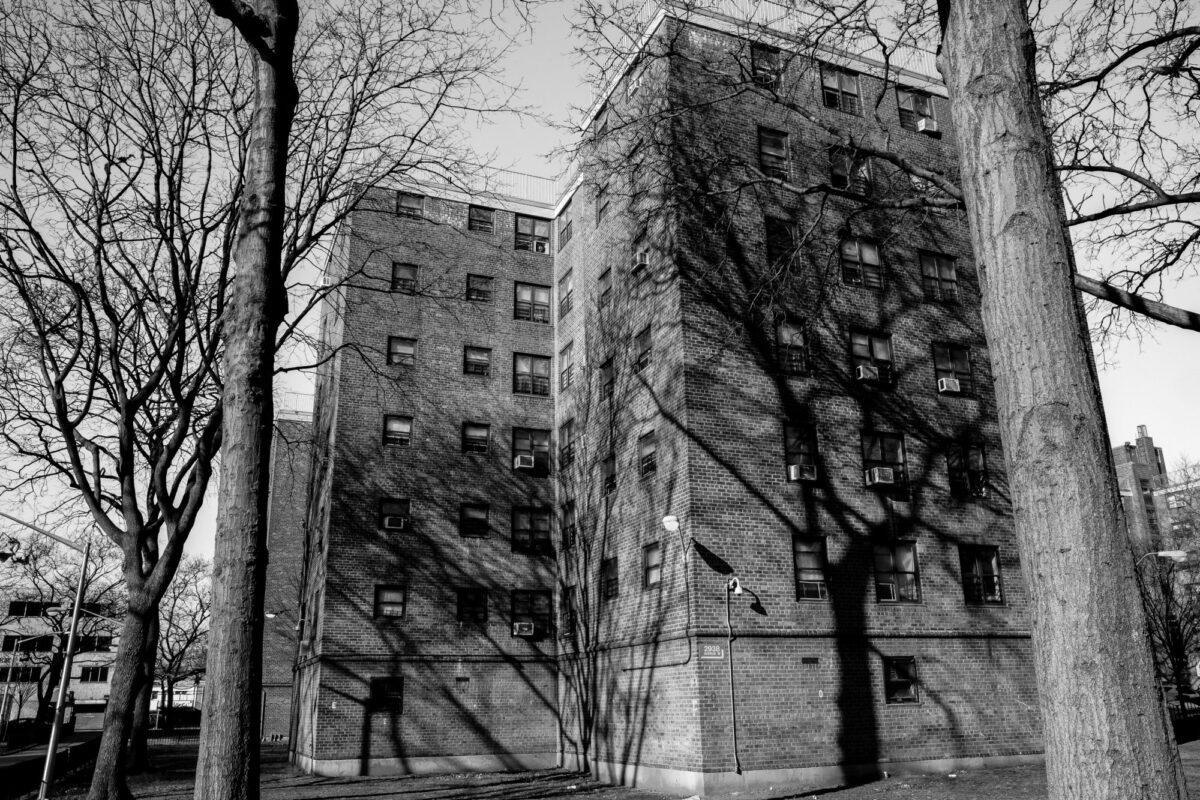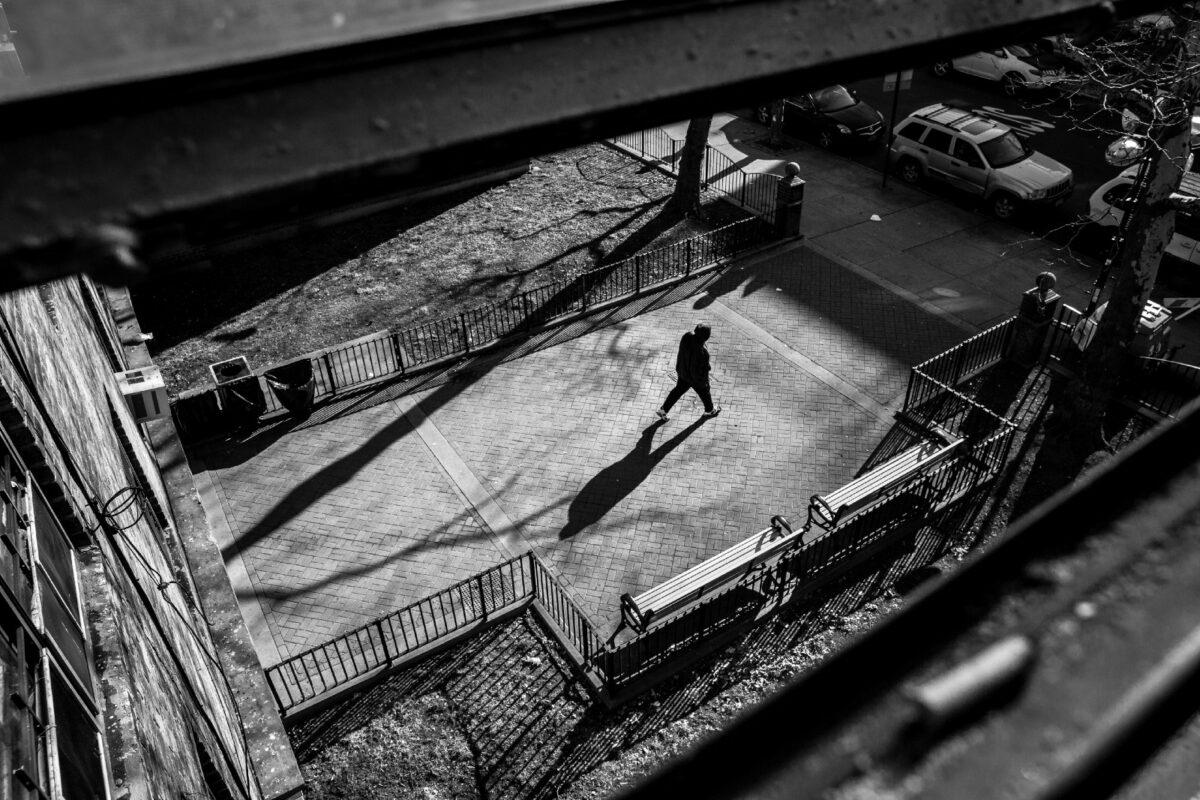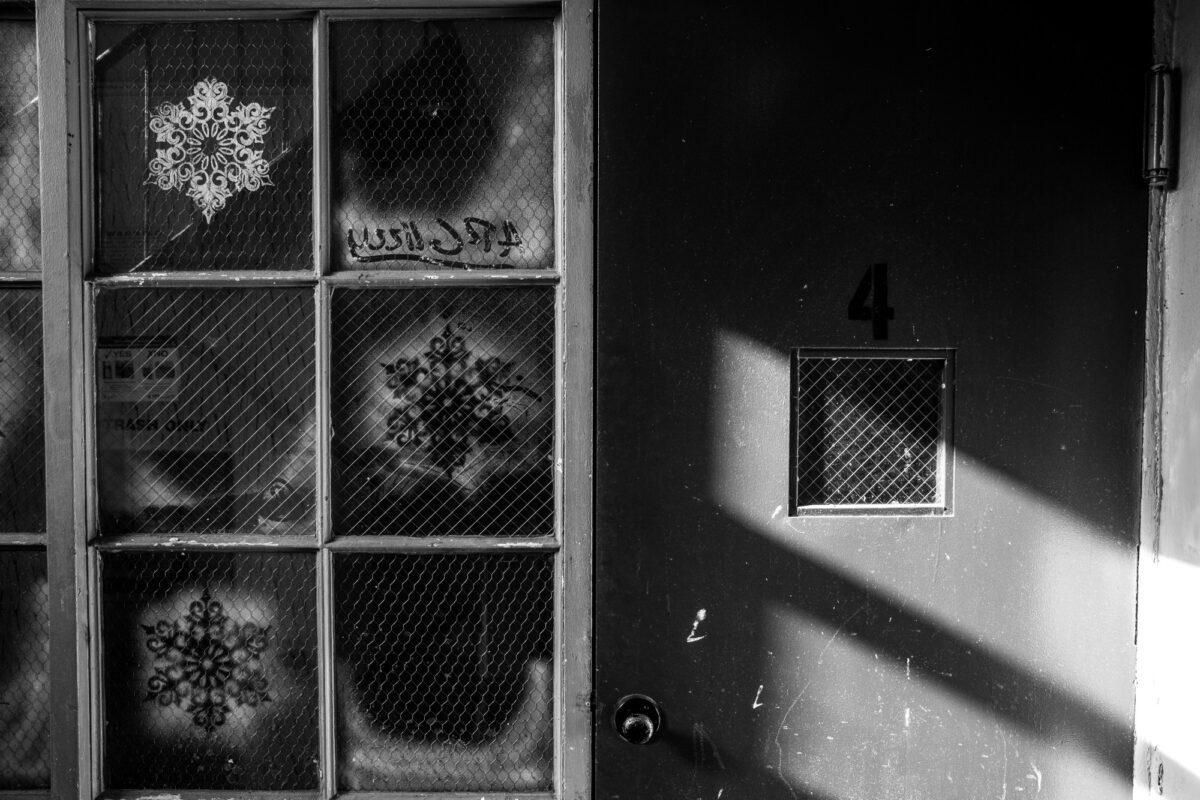NYC Agency Uses Brooklyn Gang Raid To Encourage Evictions Of Entire Families From Public Housing
Early on the morning of January 19, the New York Police Department and local and federal partners raided the Sheepshead/Nostrand Houses, a large public housing complex in Sheepshead Bay, Brooklyn, arresting 13 alleged members of the “Towaz Boyz gang.” Unnamed law enforcement authorities described the scene to the Daily Newsas a “New Jack City-style sales operation” — a reference […]

Early on the morning of January 19, the New York Police Department and local and federal partners raided the Sheepshead/Nostrand Houses, a large public housing complex in Sheepshead Bay, Brooklyn, arresting 13 alleged members of the “Towaz Boyz gang.”
Unnamed law enforcement authorities described the scene to the Daily Newsas a “New Jack City-style sales operation” — a reference to the iconic 1991 Wesley Snipes movie about the crack cocaine trade, in which a paramilitary-type drug organization takes over an entire pubic housing complex. The New York City Department of Investigation also touted the raid in a lengthy press release, detailing its 16-month investigation into the alleged drug sales operation. The release quotes William Sweeney, assistant director of the FBI New York Division, praising DOI. “People deserve to leave their homes without fearing the drug dealers and violent gang members loitering around their front doors,” he said.
But the charges against the total of 18 defendants (two men were already in custody on the morning of the raid) do not involve violent crimes. Moreover, the raid description and accompanying set of DOI policy recommendations are a transparent attempt to push the New York City Housing Authority to more regularly utilize its power to kick entire families out of public housing permanently through its tenancy termination policy, advocates told In Justice Today.

“This particular instance is being used to make a point,” said Alison Wilkey, director of public policy at the Prisoner Reentry Institute at John Jay College.
Four of the 18 defendants are charged with conspiracy to sell narcotics in the fourth degree, a charge that can be based on as little as a conversation that suggests a person is knowledgeable of drug sales. Another four are charged with criminal sale of heroin or cocaine in the third degree, which can apply to small, nickel- and dime-bags. Only two defendants, Michael Warren and Larry Davis, are charged with criminal sale in the first degree — heroin and oxycodone in excess of two ounces. Three NYCHA employees are also charged: one with trespass for allegedly unlocking a vacant apartment at Sheepshead/Nostrand so dealers could sell drugs there, two with marijuana possession for allegedly purchasing out of the apartment while on shift.
“It’s not kilos,” said Babe Howell, professor of criminal law at CUNY Law School. “It’s not, ‘We’re flooding your neighborhood with drugs.’ This is essentially a small retail drug house.” The New Jack City narrative, she added, is meant “to keep us in a position of fear and antagonism towards poor people of color in this city” despite the fact that crime in New York City is at record lows.
“I think it’s pretty racist, honestly,” a 28-year-old Sheepshead/Nostrand resident told In Justice Today on a recent Friday (he declined to provide his name). “That’s all it is. Who needs police around as much as they are? They just make it worse, honestly. They harass people for no reason.”
“Oh, wow. Not Sheepshead,” added Ebony Humphrey, 36. “It’s nice. The only thing I could complain about is the work that NYCHA does. Like the mold and stuff.”
According to DOI, two Sheepshead/Nostrand residents on the indictment were living in NYCHA apartments despite already having been banned from public housing, or “permanently excluded.” Eight others were allegedly living in public housing or government-subsidized Section 8 apartments without authorization, meaning their names were not listed on leases. The agency is now referring these addresses to NYCHA, and urging the authority to consider further action.
“I think it’s pretty racist, honestly. That’s all it is. Who needs police around as much as they are? They just make it worse, honestly. They harass people for no reason.”
DOI has released two previous reports on safety in NYCHA buildings, including in March 2017, urging NYCHA to “more aggressively prosecute tenancy termination cases,” or exercise its ability to evict entire households based on the actions of one member. NYCHA formally rejected this recommendation last July.
Still, DOI Commissioner Mark Peters’s Sheepshead/Nostrand press release encourages NYCHA once again to aggresively pursue permanent exclusion of individuals, and to evict entire families in cases where the leaseholder “participated in, or knew or should have known of serious criminal activity” by someone living there. If the leaseholder was unaware of the activity, and the person under scrutiny is part of a localized gang, DOI suggests moving the family to a “far away” NYCHA property.
“Today’s arrests highlight the inherent dangers of allowing serious, recidivist criminals to continue to reside on NYCHA property,” Peters stated.

NYCHA has historically moved to evict entire households only when a convicted criminal is the primary leaseholder, according to Wilkey of John Jay College. While the number of eviction and permanent exclusion cases tends to fluctuate from year to year, depending on how aggressively the NYPD is reporting incidents, she said that “evictions are always in the minority.”
In 2016, the most recent data available, NYCHA evicted 97 households over alleged dangerous conduct, 74 by default because the leaseholder missed his or her mandatory appearance before NYCHA’s Office of Impartial Hearings. In 649 other cases, a household member was permanently excluded. Another 985 cases were dismissed without any action.
“Mark Peters keeps saying, ‘You’ve got to evict, you’ve got to be much more aggressive in evicting families,’” said Lucy Newman, a lawyer at the Legal Aid Society who also sits on a task force with the Prisoner Reentry Institute. As for the family relocation suggestion, “people can be just caught up in these gang sweeps and they’re not involved in the activity at all. And to make their families move is absolutely ridiculous.”
Gang raids at NYCHA properties have become commonplace in recent years, driven by a policing strategy that views gangs or “groups” as the primary drivers of violent crime. In June 2014, the NYPD arrested 40 men and boys at the Grant and Manhattanville Houses in East Harlem. Of that total, 25 were charged with conspiracy in the first degree, a felony with sentences ranging from 15 years to life. The vast majority of defendants took a plea (93 percent of the total) and thus acquired criminal records that can negatively impact their job and housing prospects. In April 2016, 78 people were arrested and charged with conspiracy at the Eastchester Gardens Houses in the Bronx.
According to Newman, the Sheepshead/Nostrand raid is the first time DOI has “gone the extra step to then go back to NYCHA and see who’s permanently excluded and who isn’t,” ramping up the pressure to more aggressively evict individuals and households.
These actions increase NYCHA residents’ likelihood of becoming homeless in the midst of a citywide housing crisis, she added. Newman says that NYCHA should instead be dedicating more resources to after-school activities, job training, and programs like NYC Cure Violence, which trains NYCHA residents, mostly young men, to mediate conflicts.

NYCHA declined to say explicitly if it will heed DOI’s recommendations for stricter eviction policies. “NYCHA’s permanent exclusion policy balances the need to exclude dangerous individuals while protecting the tenancy of other family members,” spokesperson Jasmine Blake told In Justice Today. “We always welcome recommendations on how we can improve as safety and security of our residents is our top priority.”
Marie D., an 18-year-old Sheepshead/Nostrand Resident, told In Justice Today that she often feels unsafe in her home. “There’s poor supervision,” she said. “People that are not supposed to be here, they know that, and they still come back here.” But evicting entire households isn’t fair, she added. “That shouldn’t happen because there are entire families with kids, you understand?”
Raids, she said, don’t make her feel safer. A few months ago, police officers banged down Marie’s boyfriend’s door at 6 a.m. She was asleep, and police handcuffed her before they realized their mistake, she said.
“It was actually scary,” Marie recalled. “They said, ‘Oh, we had the wrong apartment,’ and they ended up leaving and going to do it to other apartments.”
